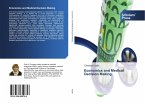This research examines the impact of varying levels of medical malpractice litigation on area medical costs and physician supply. Utilizing two separate units of analysis and alternative regression equations, the results indicate that the level of malpractice litigation is positively related to local per capita medical expenditures and negatively related to the number of area physicians. The differences are presumed to be attributed to defensive practices by physicians based on varying degrees of perceived risk along with higher malpractice insurance premiums. The results suggest that the addition to cost is substantial, potentially adding up to 17.32% in some jurisdictions, with the impact exceeding annual dollar amounts of malpractice judgments and settlements. The effect related to physician supply is smaller but highly statistically significant. The data supports the idea that litigation does have an economic impact on healthcare and underscores the importance of political institutions relating to economic activity.
Bitte wählen Sie Ihr Anliegen aus.
Rechnungen
Retourenschein anfordern
Bestellstatus
Storno








